Climate Change: What is being done around the world to plant trees?
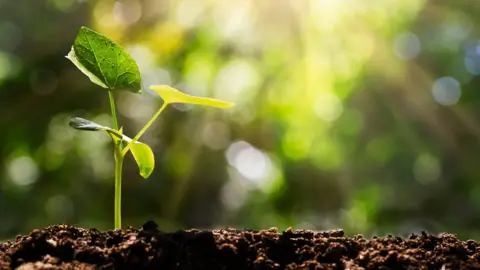 Getty Images
Getty ImagesPlanting forests bigger than the size of Hong Kong can help tackle climate change.
That's according to the United Nations, which has announced plans to plant forests in Asian and African cities to help make them become greener.
They say people moving to urban areas contributes to climate change - and will increase in the next 30 years.
This move could counter these effects by improving air quality.
Trees absorb carbon dioxide which means they can help to stop rising temperatures around the world - and also keep soil moist and reduce the risk of flooding.
A recent study suggested that planting trees is "the best climate change solution available today", although not everyone agrees with that specific claim.
So, what are countries around the world doing to plant trees?
Forests in cities
The UN Food and Agriculture Organization (FAO) director-general, Qu Dongyu, says the initial plan is to increase the amount of green space in 90 cities in 30 African and Asian countries - a total of up to 500,000 hectares of new urban forests.
The FAO says that by 2050, the proportion of people living in cities could increase by almost 70% - mainly in Africa and Asia.
This could cause damaging environmental impacts if there is no proper planning.
It claims the benefits of its plan could include a reduction in air temperature of up to eight degrees Celsius, and an improvement in air quality by filtering out dust and pollutants.
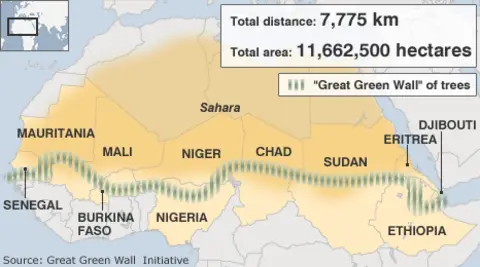
The Great Green Wall
There is an 8,000 km wall of trees being built in Africa - making it the largest living structure on the planet once it's finished.
The wall aims to spread across the width of Africa and through more than 20 countries including Senegal, Nigeria and Ethiopia.
A decade on from its launch, the wall is currently 15% complete, with 11.4 million trees planted in Senegal alone.
In Burkina Faso, Mali and Niger, more than 2 million seeds have been planted from over 50 different species of trees.
Elsewhere in the continent, Gabon has become the first African country to receive international funds to preserve its rainforest.
Norway announced it will pay $150m (£120m) through the Central African Forest Initiative - a partnership between European and African countries.
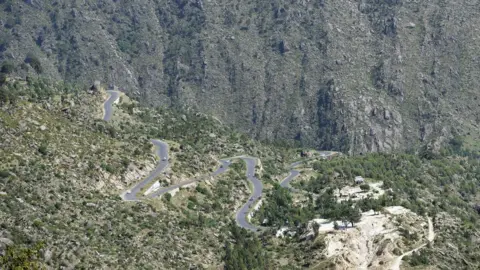 Getty Images
Getty ImagesThe 10 Billion Tree Tsunami
In August 2017, way ahead of schedule, Pakistan hit its target of planting a billion trees to combat the effects of climate change.
So in 2018, they decided to launch a new target - planting 10 billion trees in the next five years.
India's tree boom
Under the Paris Climate Agreement, India has pledged to increase its forests by a massive 95 million hectares by 2030.
In 2017 around 1.5 million volunteers planted more than 66 million trees in a record-breaking 12 hours in the state of Madhya Pradesh.
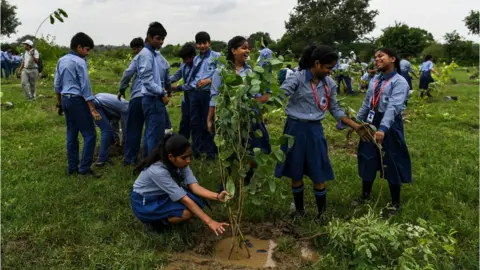 Getty Images
Getty ImagesThe UK's planting too
The UK government announced it wants more than 10 million trees to be planted across England and it would create a £60m fund to do so.
That includes £10m to plant at least 100,000 trees in towns and cities.
The Woodland Trust - the UK's leading woodland conservation charity - is aiming to plant 64 million trees in the next 10 years.
To meet its aim, it's giving away hundreds of thousands of trees for free to schools and communities to encourage tree planting.
And it wants to get more than a million people to pledge to plant a tree in the run-up to a special day of planting across the UK on 30 November.
There are even drones planting
In Myanmar, there are now drones planting trees.
The drone flies over the area where it wants to plant trees, picks the best location to plant and then fires a pod filled with seeds into the ground.
According to Worldview Impact - an organisation involved in the drone planting - two people working with 10 drones can theoretically plant an impressive 400,000 trees a day.
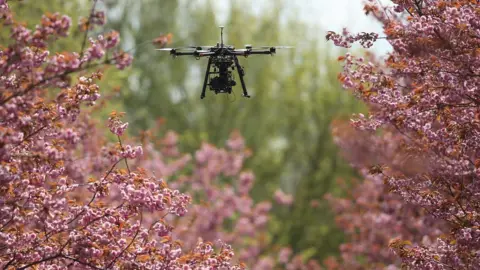 Getty Images
Getty Images

